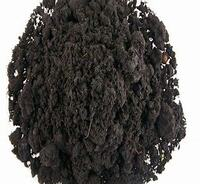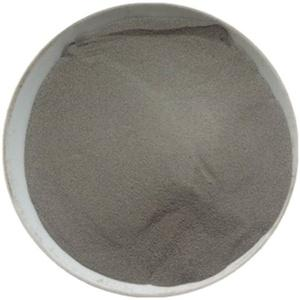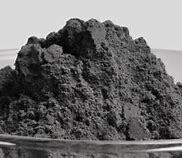1. Introduction
In the past 48 hours, additive manufacturing companies across Europe and North America reported a surge in demand for titanium powder, driven by aerospace firms accelerating lightweight component production using 3D printing. This renewed interest highlights the critical role of titanium powder in modern industrial innovation.

Titanium powder—often referred to as Ti powder—is far more than just a fine metal dust. It’s a high-performance material enabling breakthroughs in aerospace, medical implants, defense, and even consumer electronics. Whether you’re an engineer, researcher, or procurement specialist, understanding its varieties, applications, and market dynamics is essential.
2. What Is Titanium Powder?
Titanium powder is a granular form of titanium metal, typically produced through methods like gas atomization or the hydride-dehydride (HDH) process. Unlike bulk titanium, powder form allows for precise shaping via additive manufacturing or powder metallurgy.
It’s important to distinguish between pure titanium powder and titanium alloy powder. Common alloys include Ti6Al4V (also called Ti64), which contains 6% aluminum and 4% vanadium, offering superior strength-to-weight ratios. Other specialized forms include titanium nitride powder, titanium carbide powder, and titanium diboride (TiB2) powder—each serving niche industrial functions.
Note: Titanium dust is a general term that may refer to irregular or non-spherical particles, often less suitable for high-precision 3D printing compared to spherical titanium powder.
3. Key Types and Production Methods
Gas atomized titanium powder is the gold standard for 3D printing due to its spherical shape and flowability. In contrast, HDH titanium powder is angular and more cost-effective but better suited for pressing and sintering.
Other notable variants include:

- TiH2 powder (titanium hydride), used as a foaming agent in metal matrix composites
- TiO2 nano powder (titanium dioxide nanopowder), widely used in sunscreens and photocatalysts—not to be confused with metallic titanium powder
- Titanium flash powder, a pyrotechnic mixture (not pure titanium) used in special effects
- Burnt titanium powder coat, a misnomer; titanium itself isn’t typically powder-coated due to its reactivity at high temperatures
- Titanium coated diamond powder, used in cutting and polishing tools
4. Titanium Powder Uses
The applications of titanium powder are vast and growing. Key uses include:
- Aerospace: Jet engines, airframes, and landing gear components via titanium powder additive manufacturing
- Medical: Biocompatible implants like hip joints and dental fixtures using Ti6Al4V powder
- Automotive: High-performance parts requiring strength and corrosion resistance
- Defense: Armor plating and missile components
- Energy: Components in hydrogen storage and fuel cells
Ti64 powder dominates the 3D printing sector due to its excellent mechanical properties and biocompatibility. Meanwhile, titanium nitride and titanium carbide powders serve as hard coatings and wear-resistant additives.
5. Pricing and Market Trends
Titanium powder price varies significantly based on purity, particle size, morphology, and alloy composition. As of mid-2024, titanium powder price per kg ranges from $80 to over $400.
Factors influencing cost include:

- Spherical vs. irregular shape (spherical commands a premium)
- Alloy type (Ti6Al4V powder price is higher than pure titanium powder)
- Production method (gas atomized > HDH in cost)
- Order volume and supplier location
For reference, 3D printing titanium powder price typically starts around $200/kg for industrial-grade Ti64. Those looking to buy titanium powder should compare quotes from multiple titanium powder suppliers, especially if sourcing internationally.
6. Related Advanced Powders: Molybdenum and Tungsten
While titanium powder leads in lightweight applications, molybdenum powder and tungsten powder serve high-temperature and high-density needs.
Molybdenum metal powder (often called moly powder) is used in furnace components, electronics, and as an alloying agent. Popular forms include molybdenum disulfide powder (MoS2 powder), valued as a dry lubricant, and TZM powder (titanium-zirconium-molybdenum alloy).
Tungsten powder, known for its extreme density and melting point, appears as pure tungsten powder or tungsten carbide powder. Global Tungsten & Powders Corporation and similar firms supply spherical tungsten powder for radiation shielding and cutting tools. Tungsten powder price per kg can exceed $50, with tungsten carbide powder price per kg often double that.
Though chemically distinct, these powders sometimes complement titanium in multi-material systems—especially in wear-resistant composites or thermal management applications.
7. Where to Buy Titanium Powder
Reputable titanium powder suppliers include international producers like VSMPO-AVISMA, Allegheny Technologies, and Carpenter Technology. For smaller-scale needs, specialized distributors offer titanium powder for sale in lab or pilot quantities.
When you buy titanium powder, verify certifications (e.g., ASTM standards), particle size distribution, and oxygen content—critical for 3D printing success. Also, confirm whether the material is suitable for your intended process: titanium powder for 3D printing must meet strict flow and packing density requirements.
8. Conclusion
Titanium powder is a cornerstone of advanced manufacturing, especially in additive processes demanding strength, lightness, and corrosion resistance. From pure titanium powder to complex alloys like Ti6Al4V and specialty compounds like titanium diboride, the market offers diverse options—but at varying titanium powder costs. Whether you’re evaluating titanium metal powder price or comparing it to molybdenum or tungsten alternatives, understanding your application’s technical needs is key to making the right choice.
Our Website founded on October 17, 2012, is a high-tech enterprise committed to the research and development, production, processing, sales and technical services of ceramic relative materials such as Understand. Our products includes but not limited to Boron Carbide Ceramic Products, Boron Nitride Ceramic Products, Silicon Carbide Ceramic Products, Silicon Nitride Ceramic Products, Zirconium Dioxide Ceramic Products, etc. If you are interested, please feel free to contact us.
